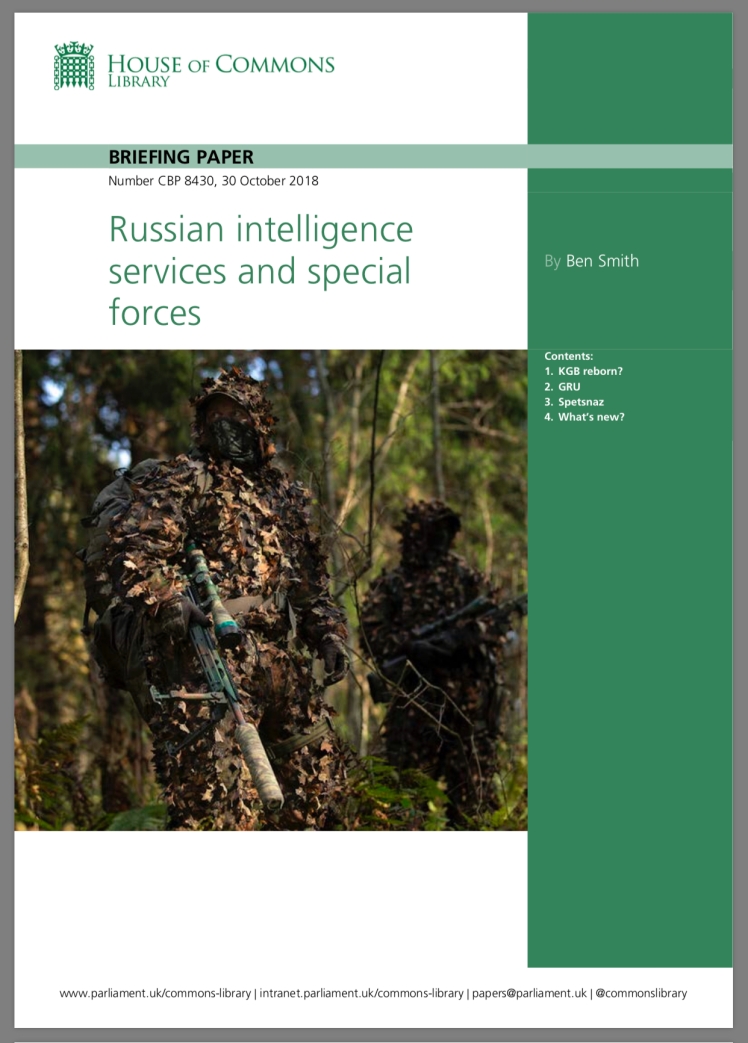Summary
The Salisbury incident and its aftermath brought the Russian secret services into the spotlight. Malcolm Chalmers of Royal United Services Institute said Russian security services were going well beyond normal spying practice: “By launching disruptive operations that threaten life in target societies, they blur the line between war and peace”.
The main domestic service, the FSB, is a successor to the Communist-era KGB. It is responsible for counter-terrorism and counter espionage and Russian information security. Critics say that it continues the KGB’s work of persecution of ‘dissidents’ and is guilty of torture and other human rights violations, and of extortion and corruption.
One estimate put its staff complement at 200,000, and it has grown in power, particularly since the election of Vladimir Putin as President of Russia. Many senior Russian government officials and company heads are ‘siloviki’ – former members of the security services.
The SVR is the foreign intelligence service and was also formed form the remains of the KGB. It is known to have run a number of ‘illegals’: moles in foreign countries with false identities and no diplomatic cover. Anna Chapman, arrested in the US 2010, was a SVR spy.
There are other elements of the former KGB such as the FSO and the GUSP. Their role is to protect high government officials among other things but details of their work are not available.
The GRU is the military intelligence agency and is described as particularly audacious; its official remit is providing military intelligence to the Russian president and government, and ensuring Russia’s military, economic and technological security. The GRU has been behind many of the cyber attacks against Western institutions, including the one which resulted in a leak of emails from the US Democratic Party in 2016. In 2018, the investigative website Bellingcat released the names of 305 individuals it suspected of being GRU agents.
Spetsnaz are Russian special forces. They are trained in fighting but also in intelligence work and are attached to various military forces. The GRU has its own spetsnaz forces. Spetsnaz have been involved in conflicts including Afghanistan, Ukraine and Syria.
While the Kremlin seems to be pushing political intervention in rival states as a strategy, something known to the Soviets as ‘active measures’, the fact that so much of these operations has become public knowledge and so many of them have failed is perhaps surprising.
Western governments’ strategy of making public as much of what they know as possible is different to earlier thinking, whereby the secret services would keep their discoveries and methods as secret as possible.

Russian Intelligence Services and Special Forces
#BSG